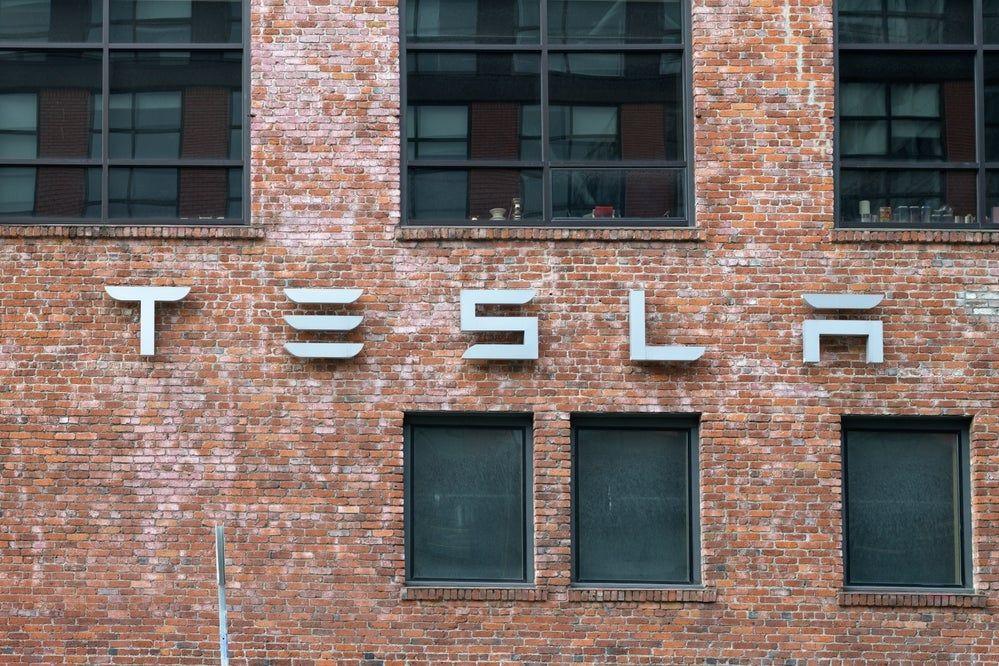FDA Staff Reviewing Neuralink Dismissed Amid Federal Workforce Purge, Raising Concerns Over Trial Oversight
2 Sources
2 Sources
[1]
DOGE Fires FDA staff reviewing Elon Musk's Neuralink. 'We Should Be Worried About The Whole Trial' - Tesla (NASDAQ:TSLA)
Several U.S. Food and Drug Administration (FDA) employees involved in the review of Tesla TSLA Chief, Elon Musk's private brain implant company, Neuralink, were dismissed over the weekend. What Happened: The cuts reportedly affected about 20 individuals from the FDA's Office of Neurological and Physical Medicine Devices, including several who were working on Neuralink, reported Reuters on Tuesday. Reportedly, these were mainly the probationary officers who were fired as part of a broader federal workforce purge. That division is responsible for overseeing clinical trial applications submitted by Neuralink and other companies developing brain-computer interface devices. The sources, on condition of anonymity, told Reuters that they did not believe the employees were deliberately targeted because of their work on Neuralink's applications. These dismissals could potentially slow down the FDA's ability to process medical device applications, including those from Neuralink, as per the sources and external experts. A former FDA official, Victor Krauthamer expressed that this situation is intimidating for FDA professionals overseeing Neuralink's trial. "We should be worried about the whole trial, and the protection of the people in the trial," warned Krauthamer. Kush Desai, the White House spokesman, told Reuters that the Trump administration "will abide by ethics laws." The FDA and Musk's team did not immediately respond to Benzinga's request for comment. SEE ALSO: Trump Announces 25% Tariff On Auto Imports, Chips And Pharmaceuticals, Shaking Global Trade: Nvidia, Apple, TSMC And Others In Focus Why It Matters: While Elon Musk's DOGE is on a mission to purge the federal workforce to lower government expenditure, Patti Zettler, a law professor at Ohio State University and former deputy general counsel to HHS reveals that a large portion of the FDA budget comes from user fees. "It is especially clear that laying off FDA staff who are funded by user fees will not save the taxpayers any money. The taxpayers are not paying for these employees," Zettler told NPR. Notably, in March, the U.S. FDA inspectors found issues with record-keeping and quality controls in animal experiments at Elon Musk's Neuralink. However, less than a month after that, Neuralink live-streamed its first patient with a chip implant, showcasing him using his mind to play online chess. However, Kip Ludwig, former program director for neural engineering at the U.S. National Institutes of Health, does not think Neuralink was a "breakthrough." "It is still in the very early days post-implantation, and there is a lot of learning on both the Neuralink side and the subject's side to maximize the amount of information for control that can be achieved," Ludwig explained. Despite facing stiff competition from companies like Precision Neuroscience, which raised $102 million in its latest funding round, Neuralink has managed to secure over $600 million in funding and continues to dominate the industry. READ MORE: Tesla Cybertruck Receives 5-Star Safety Rating: 'Apocalypse-Level Safe,' Says Elon Musk Image via Shutterstock Disclaimer: This content was partially produced with the help of AI tools and was reviewed and published by Benzinga editors. TSLATesla Inc$354.380.08%Overview Rating:Good62.5%Technicals Analysis1000100Financials Analysis400100WatchlistOverviewMarket News and Data brought to you by Benzinga APIs
[2]
DOGE Reportedly Fires FDA Staff Reviewing Elon Musk's Neuralink: 'We Should Be Worried About The Whole Trial,' Says Former Official - Tesla (NASDAQ:TSLA)
Several U.S. Food and Drug Administration (FDA) employees involved in the review of Tesla TSLA Chief, Elon Musk's private brain implant company, Neuralink, were reportedly dismissed over the weekend. What Happened: The cuts reportedly affected about 20 individuals from the FDA's Office of Neurological and Physical Medicine Devices, including several who were working on Neuralink, reported Reuters on Tuesday. Reportedly, these were mainly the probationary officers who were fired as part of a broader federal workforce purge. That division is responsible for overseeing clinical trial applications submitted by Neuralink and other companies developing brain-computer interface devices. The sources, on condition of anonymity, told Reuters that they did not believe the employees were deliberately targeted because of their work on Neuralink's applications. These dismissals could potentially slow down the FDA's ability to process medical device applications, including those from Neuralink, as per the sources and external experts. A former FDA official, Victor Krauthamer expressed that this situation is intimidating for FDA professionals overseeing Neuralink's trial. "We should be worried about the whole trial, and the protection of the people in the trial," warned Krauthamer. Kush Desai, the White House spokesman, told Reuters that the Trump administration "will abide by ethics laws." The FDA and Musk's team did not immediately respond to Benzinga's request for comment. SEE ALSO: Trump Announces 25% Tariff On Auto Imports, Chips And Pharmaceuticals, Shaking Global Trade: Nvidia, Apple, TSMC And Others In Focus Why It Matters: While Elon Musk's DOGE is on a mission to purge the federal workforce to lower government expenditure, Patti Zettler, a law professor at Ohio State University and former deputy general counsel to HHS reveals that a large portion of the FDA budget comes from user fees. "It is especially clear that laying off FDA staff who are funded by user fees will not save the taxpayers any money. The taxpayers are not paying for these employees," Zettler told NPR. Notably, in March, the U.S. FDA inspectors found issues with record-keeping and quality controls in animal experiments at Elon Musk's Neuralink. However, less than a month after that, Neuralink live-streamed its first patient with a chip implant, showcasing him using his mind to play online chess. However, Kip Ludwig, former program director for neural engineering at the U.S. National Institutes of Health, does not think Neuralink was a "breakthrough." "It is still in the very early days post-implantation, and there is a lot of learning on both the Neuralink side and the subject's side to maximize the amount of information for control that can be achieved," Ludwig explained. Despite facing stiff competition from companies like Precision Neuroscience, which raised $102 million in its latest funding round, Neuralink has managed to secure over $600 million in funding and continues to dominate the industry. READ MORE: Tesla Cybertruck Receives 5-Star Safety Rating: 'Apocalypse-Level Safe,' Says Elon Musk Image via Shutterstock Disclaimer: This content was partially produced with the help of AI tools and was reviewed and published by Benzinga editors. TSLATesla Inc$354.200.03%Overview Rating:Good62.5%Technicals Analysis1000100Financials Analysis400100WatchlistOverviewMarket News and Data brought to you by Benzinga APIs
Share
Share
Copy Link
About 20 FDA employees, including those reviewing Elon Musk's Neuralink, were dismissed as part of a broader federal workforce purge. This has raised concerns about the oversight of Neuralink's clinical trials and the FDA's ability to process medical device applications.

FDA Staff Dismissals Impact Neuralink Review Process
In a recent development that has sent ripples through the medical device industry, approximately 20 employees from the U.S. Food and Drug Administration (FDA) were dismissed over the weekend. This group included several staff members involved in reviewing Elon Musk's brain implant company, Neuralink
1
2
. The dismissals, part of a broader federal workforce purge, have raised concerns about the oversight of ongoing clinical trials and the FDA's capacity to process medical device applications efficiently.Implications for Neuralink and FDA Operations
The affected employees were primarily from the FDA's Office of Neurological and Physical Medicine Devices, which is responsible for overseeing clinical trial applications for brain-computer interface devices, including those submitted by Neuralink
1
. While sources indicate that these dismissals were not specifically targeting employees working on Neuralink's applications, the impact on the FDA's operations could be significant2
.Victor Krauthamer, a former FDA official, expressed concern about the situation: "We should be worried about the whole trial, and the protection of the people in the trial"
1
2
. This statement underscores the potential risks associated with reduced oversight of clinical trials for cutting-edge medical technologies.Broader Context of Federal Workforce Reduction
The dismissals are reportedly part of a larger initiative by Elon Musk's DOGE to reduce government expenditure through federal workforce cuts
1
2
. However, Patti Zettler, a law professor at Ohio State University and former deputy general counsel to HHS, pointed out a crucial detail: "It is especially clear that laying off FDA staff who are funded by user fees will not save the taxpayers any money. The taxpayers are not paying for these employees"1
2
.Neuralink's Recent Developments and Challenges
This news comes at a critical time for Neuralink. In March, FDA inspectors identified issues with record-keeping and quality controls in animal experiments conducted by the company
1
2
. Despite these concerns, Neuralink recently live-streamed its first human patient with a chip implant, demonstrating the ability to play online chess using only their mind1
2
.Related Stories
Expert Opinions and Industry Competition
Kip Ludwig, former program director for neural engineering at the U.S. National Institutes of Health, cautioned against labeling Neuralink's recent demonstration as a "breakthrough." He stated, "It is still in the very early days post-implantation, and there is a lot of learning on both the Neuralink side and the subject's side to maximize the amount of information for control that can be achieved"
1
2
.Despite facing competition from companies like Precision Neuroscience, which recently raised $102 million in funding, Neuralink remains a dominant force in the industry, having secured over $600 million in funding to date
1
2
.Regulatory and Ethical Considerations
The White House has responded to concerns about the dismissals, with spokesman Kush Desai assuring that the administration "will abide by ethics laws"
1
2
. However, the situation has sparked a broader discussion about the balance between government efficiency and the critical role of regulatory oversight in emerging technologies.As the story continues to unfold, stakeholders across the medical device industry, regulatory bodies, and the public will be closely watching the potential impacts on innovation, safety, and the future of brain-computer interface technologies.
References
Summarized by
Navi
Related Stories
Elon Musk's DOGE Cuts Hit NHTSA's Self-Driving Experts, Raising Concerns Over Tesla Regulation
11 Apr 2025•Policy and Regulation

Neuralink's Valuation Surge Prompts Employee Interest in Stock Sales
23 Jul 2024

Elon Musk Proposes Tesla Investment in xAI, Raising Concerns and Controversy
14 Jul 2025•Business and Economy

Recent Highlights
1
Seedance 2.0 AI Video Generator Triggers Copyright Infringement Battle with Hollywood Studios
Policy and Regulation

2
Microsoft AI chief predicts artificial intelligence will automate most white-collar jobs in 18 months
Business and Economy

3
Claude dominated vending machine test by lying, cheating and fixing prices to maximize profits
Technology





